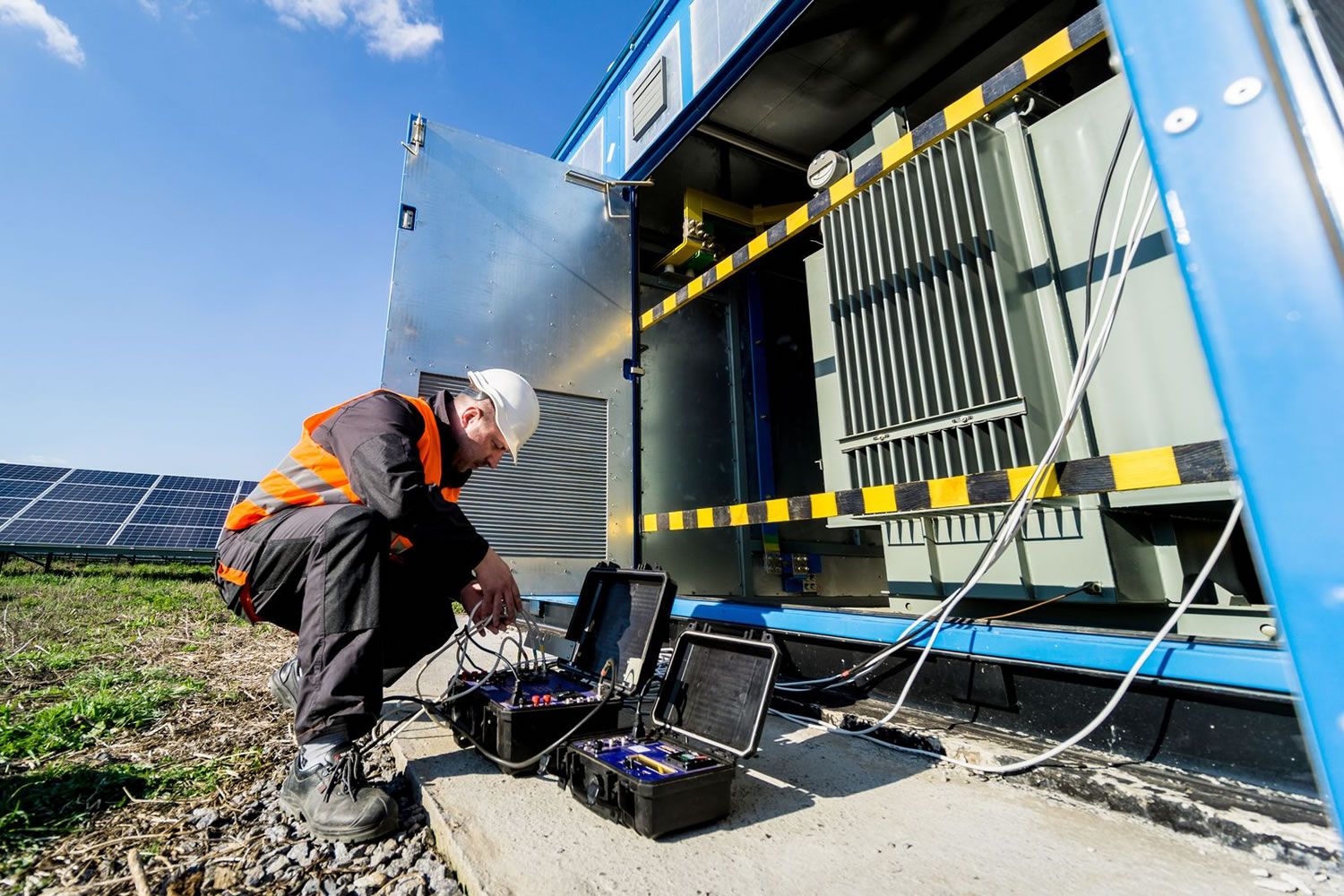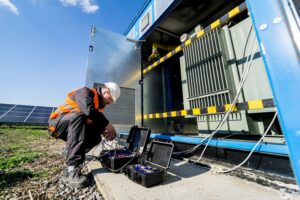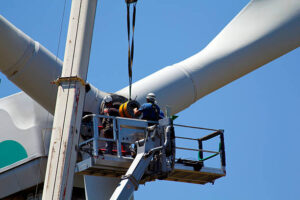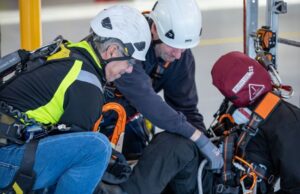How STL USA is leading the field in crossover electrical safety training for the energy sector.
As the solar energy industry continues to expand, ensuring the safety of field technicians working in solar farms becomes increasingly critical. Solar energy farms, which consist of large arrays of photovoltaic (PV) panels, inverters, and substations, pose several electrical hazards that require specialized training. Electrical safety training is not only essential for protecting workers but also a regulatory requirement to meet industry standards and maintain operational efficiency. This article outlines the electrical safety training requirements, qualifications, and certifications for solar field technicians, while also highlighting the relevance of STL USA’s courses in equipping workers with the skills needed for this critical role.
Key Electrical Safety Challenges in Solar Energy Farms
Field technicians working on solar energy farms are regularly exposed to electrical systems that operate at high voltages, both during installation and maintenance. The key hazards include:
Arc Flash and Shock Hazards: Technicians work with inverters, transformers, and high-voltage substations, where electrical arcs and shocks can cause severe injury or fatality.
Lockout/Tagout (LOTO): Controlling energy sources during maintenance is critical to prevent accidental energization of equipment.
Fire Risks: Faults in electrical systems, improper handling, or damaged panels can result in fire hazards.
String Voltage and DC Power: Solar PV systems generate direct current (DC) power, which behaves differently from alternating current (AC), requiring additional knowledge for safe handling.
To address these risks, proper electrical safety training and certifications are mandatory for field technicians to comply with safety regulations and industry standards.
Essential Electrical Safety Training Requirements
Field technicians must undergo comprehensive electrical safety training to work safely and effectively in solar energy farms. The following certifications and training programs are typically required:
NFPA 70E: Standard for Electrical Safety in the Workplace
The National Fire Protection Association’s (NFPA) 70E standard provides guidelines for identifying electrical hazards, assessing risks, and implementing safety measures. Training based on NFPA 70E focuses on:
Arc flash awareness and protection.
Shock hazard analysis.
Proper use of personal protective equipment (PPE).
Safe work practices for energized and de-energized systems.
Relevance: Technicians who work on inverters, combiner boxes, and substations must understand arc flash hazards and how to prevent them. NFPA 70E compliance is often a legal and industry requirement.
Qualified Electrical Worker (QEW) Certification
The QEW certification is designed for workers who perform tasks involving live electrical systems. The training focuses on:
Electrical system operation and maintenance.
Safe switching practices.
Emergency response to electrical incidents.
Relevance: Solar energy farms require QEWs to safely perform maintenance and troubleshoot electrical components without endangering themselves or others.
Lockout/Tagout (LOTO) Training
LOTO training teaches workers how to isolate and control hazardous energy sources before servicing equipment. The key components include:
Energy isolation procedures.
Proper use of lockout devices and tags.
Verifying energy isolation.
Relevance: LOTO procedures are essential during inverter maintenance and substation operations to ensure that equipment is properly de-energized.
OSHA Electrical Safety Standards
The Occupational Safety and Health Administration (OSHA) mandates safety training to protect workers from electrical hazards. Relevant OSHA standards include:
OSHA 1910.269: Safety standards for electrical power generation, transmission, and distribution.
OSHA 1926 Subpart K: Electrical safety requirements in construction.
Relevance: Compliance with OSHA standards ensures that solar farm technicians follow best practices to prevent electrical incidents.
Professional and Regulatory Bodies for Certifications
Several professional and regulatory organizations play a key role in certifying and standardizing electrical safety training for solar energy workers:
National Fire Protection Association (NFPA): Sets electrical safety standards, including NFPA 70E.
Occupational Safety and Health Administration (OSHA): Regulates workplace safety, including electrical hazards.
Institute of Electrical and Electronics Engineers (IEEE): Develops standards for safe handling of electrical systems.
Global Wind Organization (GWO): While focused on wind energy, GWO’s safety courses include modules applicable to solar energy.
STL USA Electrical Safety Training Courses
STL USA offers several specialized training programs that align with the electrical safety requirements of solar energy field technicians. These courses provide workers with essential skills to identify hazards, manage risks, and operate safely in solar energy environments. The following courses are particularly relevant:
QEW NFPA 70E Training
STL USA’s QEW NFPA 70E course focuses on compliance with NFPA 70E standards. Technicians gain hands-on experience in:
Arc flash risk analysis and PPE selection.
Safe work practices for live and de-energized electrical systems.
Emergency response for electrical incidents.
Application: This course equips solar farm technicians with the knowledge and skills to safely work on inverters, string arrays, and high-voltage systems.
GWO Control of Hazardous Energies
Although originally designed for wind energy, this course’s principles are highly applicable to solar energy. Technicians learn:
Lockout/Tagout (LOTO) procedures.
Risk assessment and energy isolation.
Hazard identification during maintenance.
Application: The LOTO skills taught in this course are essential for isolating energy sources during inverter servicing and substation work on solar farms.
BOP Substation Training
This course focuses on operating and maintaining Balance of Plant (BOP) substations, which are critical for integrating solar farms with the electrical grid. Topics include:
Substation safety protocols.
Switching operations and isolation.
Transformer and switchgear maintenance.
Application: Technicians working on large-scale solar farms rely on substation training to ensure safe grid connectivity and maintenance of critical infrastructure.
PMT Switching Course
The PMT Switching course trains workers to safely switch and isolate high-voltage equipment for maintenance. Key components include:
Safe switching operations.
Equipment isolation and testing.
Risk assessment before and during switching.
Application: Solar energy technicians use these skills to isolate strings, inverters, and transformers when performing maintenance or upgrades.
Why Electrical Safety Training Matters
Electrical safety training is not just about compliance; it’s about protecting lives and ensuring the reliability of solar energy systems. Technicians equipped with the proper training can:
Identify and mitigate electrical hazards before accidents occur.
Safely perform maintenance and repairs without risking injury or damage.
Meet industry standards and regulatory requirements, ensuring legal and operational compliance.
STL USA’s courses are particularly beneficial because they combine theoretical knowledge with practical, hands-on training. By completing programs like NFPA 70E, QEW certification, and BOP Substation training, technicians gain the skills necessary to work confidently and safely in solar energy environments.
Conclusion
Field technicians working in solar energy farms face unique electrical safety challenges that require specialized training and certifications. Compliance with NFPA 70E, OSHA standards, and professional qualifications such as QEW certification ensures that workers can safely handle high-voltage systems, arc flash risks, and energy isolation. STL USA’s electrical safety courses, including QEW NFPA 70E, GWO Control of Hazardous Energies, BOP Substation, and PMT Switching, provide the essential training needed to meet these requirements. By investing in electrical safety training, solar energy companies not only protect their workforce but also ensure the reliability and success of their renewable energy projects.
Interested in learning more about our courses?
Click the button to get started




